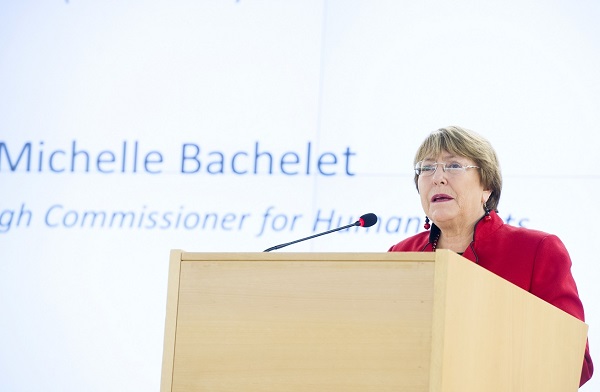United Nations, The UN Human Rights head has expressed concern over the Citizenship (Amendment) Act (CAA), but said that “the goal of protecting persecuted groups is welcome.”
“While the goal of protecting persecuted groups is welcome, this should be done through a robust national asylum system that is premised on the principle of equality and non-discrimination, and which applies to all people in need of protection from persecution and other human rights violations, with no distinction as to race, religion, national origin or other prohibited grounds,” Jeremy Laurence, the spokesperson for UN Human Rights High Commissioner Michele Bachelet, said in Geneva on Friday.
Laurence said the CAA is fundamentally discriminatory in nature and is cause for concern.
The law, which was approved by the two Houses of Parliament and received President Ram Nath Kovind’s assent on Thursday, seeks to protect victims of religious persecution in the region.
It will give refuge to Hindus, Christians, Sikhs, Buddhists, Jains and Parsis fleeing persecution in the officially Islamic Pakistan and Afghanistan and Muslim-majority Bangladesh.
Home Minister Amit Shah has said that the Muslim community was not persecuted in those three countries, and the legislation specifically seeked to provide citizenship to six religiously persecuted minorities.
Laurence noted that the broader naturalisation laws remain in place, “these amendments will have a discriminatory effect on people’s access to nationality.”
He added: “The amended law would appear to undermine the commitment to equality before the law enshrined in India’s Constitution and India’s obligations under the International Covenant on Civil and Political Rights and the Convention for the Elimination of Racial Discrimination, to which Indian is a state party, which prohibit discrimination based on racial, ethnic or religious grounds.”
India endorsed the Global Compact for Safe, Regular and Orderly Migration about a year ago and it requires countries to base laws on human rights while responding to the needs of vulnerable migrants, and avoiding arbitrary detention and collective expulsions, he said.
Laurence said that it was hoped that the Supreme Court will consider India’s international human rights obligations when considering the appeals against the law.
He also expressed concern over the deaths of two protesters against the law in Assam.
The protests in Assam, however, are not aimed against the exclusion of Muslims in law but against all refugees in the state.
UN Secretary-General Antonio Guterres’s Deputy Spokesperson Farhan Haq said on Thursday that the UN was “closely examining” the implications of the legislation.










